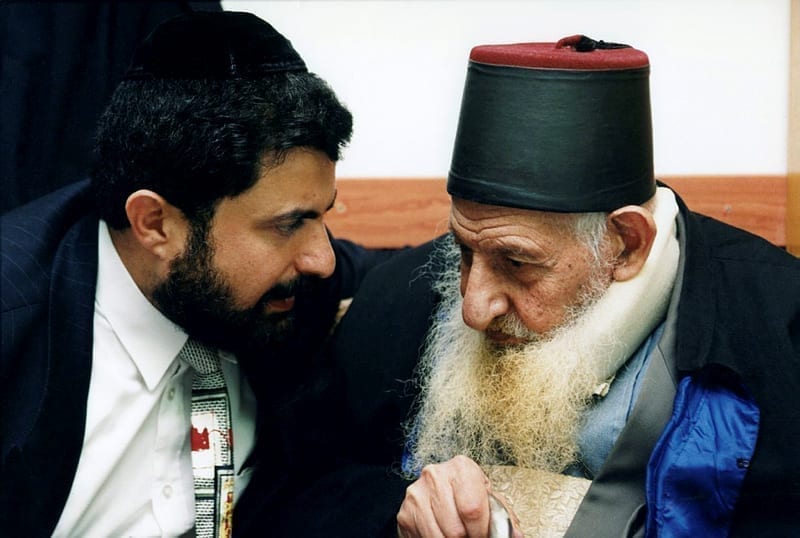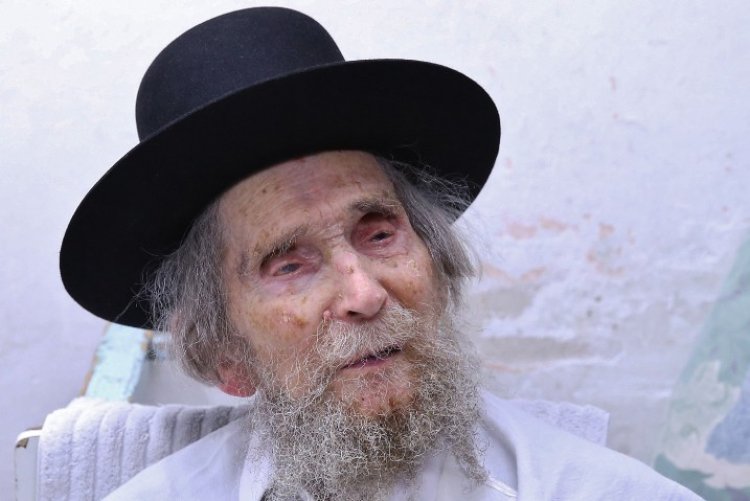1. Rabbi Chaim Vital was born in Safed in the time that Torah scholarship and the study of Kabbalah in that town was extremely high. Many dozens of the leading Torah scholars of the generation lived there at the time. When he was 14 years old, Rabbi Chaim was accepted into the Bet Midrash (Study Hall) of Rabbi Moshe Alshich where he learned with great diligence. But Rabbi Vital wasn’t satisfied learning the ‘open’ parts of Torah alone. He was drawn to the study of the secret part of Torah, Kabbalah. After a while he joined the study hall of Rabbi Mosh Cordovero from whom he learned Kabbalah.
2. At that time Rabbi Vital was a member of 2 study halls; that of Rabbi Alshich where he continued learning the open portions of Torah and that of Rabbi Cordovero where he learned Kabbalah. Since he had to learn all of this material, he studied diligently and he almost didn’t sleep.
3. After a while Rabbi Vital accepted Rabbi Isaac Luria the Ari as his main teacher. He left his commercial ventures and dedicated his whole day to learning Kabbalah.
4. Since the Ari didn’t write down his teachings he just taught everything by heart, Rabbi Chaim Vital wrote and edited all of the Ari’s teachings.
5. For 2 years straight Rabbi Chaim Vital learned Kabbalah by the Ari receiving wonderful Torah secrets never before heard. Once Rabbi Vital asked the Ari to explain him something specific and the Ari replied that he couldn’t because it would cause his death. After more thought he decided to teach Rabbi Vital those things thinking to himself, that his whole reason for being in the world was in order to give over these revelations to Rabbi Vital. A short while after teaching Rabbi Vital these things he indeed died.
6. The Ari testified about Rabbi Chaim Vital that he was the only one who could understand the Ari’s teachings in their proper depth and really get their meaning.
7. A few years later Rabbi Alshich awarded Rabbi Vital with rabbinical ordination. 4 years later he went to Jerusalem where he was received with honors and after that he served as Rabbi of Damascus till his passing.
8. On 30 Nissan, 5380, 397 years ago Rabbi Chaim Vital passed away and he was buried in Damascus.
9. Here’s a partial list of his works: the ‘Book of Incarnations’, the ‘Book of Visions’, The Tree of Life”, ‘Gate of Intentions’, ‘The Gate of the Sayings of Rashbi (Rabbi Shimon Bar Yochai) and ‘The Gates of Holiness’. The Tree of Life is a foundational book on the teachings of the Ari which Rabbi Chaim Vital wrote. In it the Ari’s teachings are explained. Rabbi Chaim warns people in the beginning of the book against someone learning kabbalah if he is not worthy to do so. He enumerates the dangers and the corruptions that can happen to an unworthy student of Kabbalah.
“A person shall not say I will go learn the wisdom of Kabbalah before learning in the Bible the Mishna and the Talmud for our sages already said that a person shouldn’t go into ‘the orchard’ (an acronym for Kabbalistic studies) before filling up on meat and wine meaning the regular parts of Torah. This is similar to a soul that gets no reward or any reckoning until it enters and ties in with a body, becoming complete with all 613 commandments… for this is not given over to man’s heart like other human intelligence. Logic applied in them can be very dangerous and he may G-d forbid be considered of those that cut down the saplings.”
10. The book ‘Gates of Holiness’ is a very deep book whose purpose is to “straighten man to be able to serve his Creator”. Here are a number of quotes from this book:
“The four ‘fathers’ of bad character traits are: Haughtiness and the anger which is included in it, idle talk, the desire for pleasures and sadness.”
“The opposite of these are the 4 good traits: Humility which is the epitome of humbleness distancing himself from anger that comes from haughtiness. Silence; making himself mute except for learning Torah or mitzvoth or things necessary for sustaining his body or the honor of man. Being disgusted with all body pleasures permitting only what is needed. And constant happiness with his lot for all that G-d does is for the best. And he should also make himself totally happy in serving his Creator.”
“Since the evil traits are fixed in man, he refrains from fulfilling the Torah and the mitzvoth, and even if he fulfills them, it won't be for the sake of Heaven or with great effort.”
“Humbleness to the greatest extent; He should not be angry at all even on members of his family, and he should not be at all, he shoud accept embarrasment and not insult back, then he will be happy even during times of trouble.
“Love all people, even gentiles.”
“And he shall not be jealous of anything, for our days are as a shadow upon the earth.”
“You should hate and give no importance to worldly matters and you shall eat bread with salt, etc., and you shall not covet any of the vanities of this world.”
“Flee with all your might from positions of rulership which bury the people in those positions.”
“Every night when you go to sleep, remember that it's a miniature death which reminds you of your real death. Look at all the deeds you did that day, and if there are bad deeds confess them, as the way of those who die confess their sins. Then deposit your spirit in His hand like the verse In Your hand I deposit my soul (Tehillim 31: 6).
“These should be avoided to the greatest extent: Beware of all kinds of anger, strictness and pride, even toward the members of your household.”
“And if a man insults you don't answer him; be insulted and don't insult.”
“Forego your inclination to harm anyone who harmed you and don't even feel pain in your heart from it. For if you understood the benefit (of not answering back) you would search for those who cause you pain for then you are seeking life.”
“And accept every man with joy, even if he hates you, through that he will love you and the merit is yours.”
“And all your words should be calm and low, and do not enter the border of anger.”
“And remove sadness and worry from your heart, and pass evil from your flesh, for it is an obstacle to you removing the spirit of holiness from you.”
“Run away from the rabbinate, for it shortens your years.”
“And keep away from idle conversation, lying, flattery, clowning, and slander, because those who talk like that are part of the groups of people who don't accept the Divine Presence in the World to Come.”
“And grab hold of humility that leads to the spirit of holiness, and be like a doorstep trampled by the great and the small.”
“And shut your ear from gossip and slander.”
“And he should like a mute and not open his mouth except for Torah and mitzvot and necessary negotiations, and you should accept man with a pleasant countanence and a soft tongue.”
“Do not praise your own good deeds because you will lose your reward, and you will receive punishment for that.”
May Rabbi Chaim Vital's memory be blessed and may his merit protect us.





